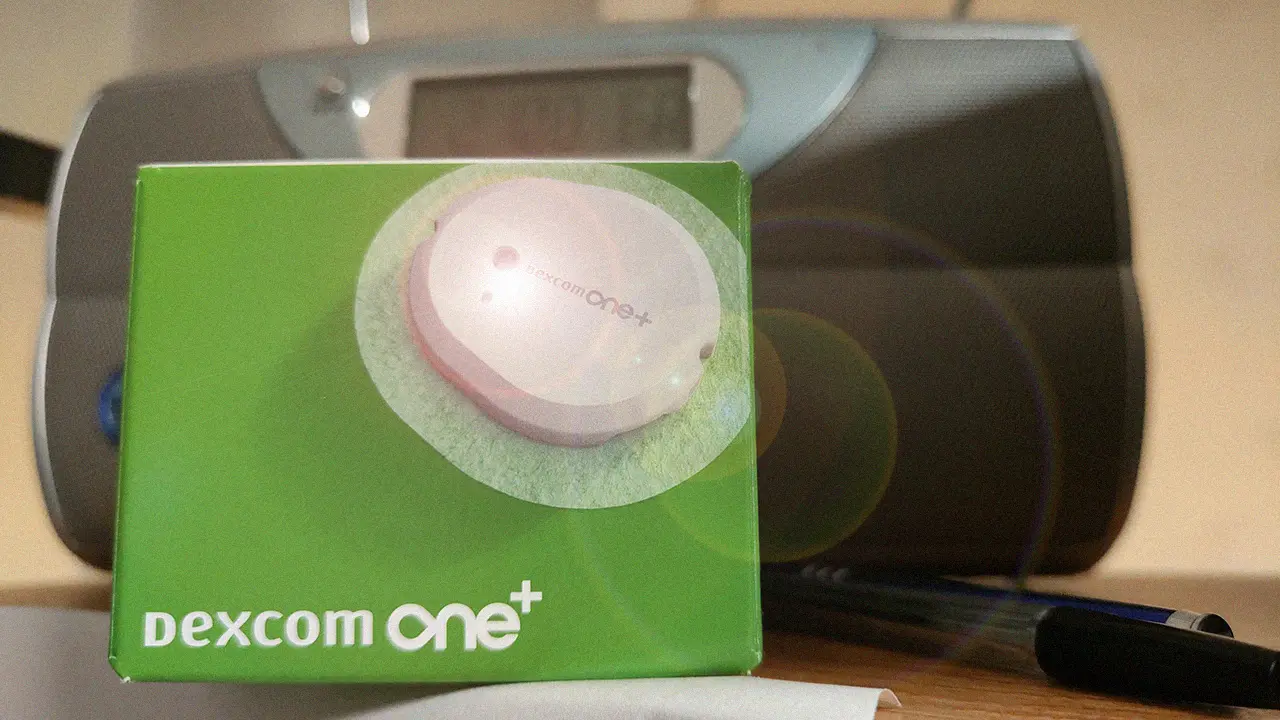Introduction
GlucaGen (glucagon) is a reimbursable prescription drug. Used for:
- Treatment of severe hypoglycemia (dangerously low blood sugar) in adults and children with diabetes . Severe hypoglycemia is a medical emergency that requires the help of another person. GlucaGen is a medication that a caregiver can administer to increase blood sugar levels.
- The gastrointestinal tract is held up during certain radiological examinations in adults. These actions help diagnose certain conditions affecting the stomach or intestines .
GlucaGen is intended for short-term use. It is administered as a subcutaneous or intramuscular injection. A specialist may also administer the drug as an intravenous injection .
Here are some facts about GlucaGen:
- Active ingredient: glucagon
- Drug class: antihypoglycemic drug and gastrointestinal motility inhibitor
- The form of the drug: a powder that is mixed with a liquid to produce an injectable solution, available as:
- GlucaGen HypoKit (single-dose vial of powder with single-dose syringe of sterile water)
- GlucaGen diagnostic kit (single-dose vial of powder with single-dose vial of sterile water)
- GlucaGen (single-dose vial)
Like other drugs, GlucaGen can cause side effects.
More common side effects of GlucaGen
GlucaGen may cause some side effects, some of which are more common than others. These side effects may be temporary, lasting from a few hours to a few days. However, if side effects last longer, bother you or become severe, talk to your doctor or pharmacist.
These are just a few of the most common side effects reported with GlucaGen:
- injection site reactions
- headache
- nausea and vomiting
Mild side effects of GlucaGen
Mild side effects may occur with the use of GlucaGen. This list does not include all possible mild side effects of the drug.
Mild side effects that have been reported while using GlucaGen include:
- dizziness
- lack of energy
- lethargy
- diarrhea
- temporary increase in blood pressure or heart rate
- temporary drop in blood pressure
- injection site reactions
- headache
- nausea and vomiting
Serious side effects of GlucaGen
GlucaGen can cause serious side effects.
Serious adverse reactions that have been reported are:
- Hyperglycemia (high blood sugar) if GlucaGen is administered during radiological examinations in people with diabetes.
- Necrolytic migratory erythema (a type of severe skin rash) if GlucaGen is administered by continuous intravenous infusion .* Symptoms may include:
- scaly, itchy patches on the skin
- large blisters filled with clear fluid
- raw skin areas
- Allergic reaction .
* A continuous intravenous infusion is an injection into a vein administered over a long period of time.
Frequently asked questions about GlucaGen side effects
GlucaGen can cause a number of side effects. Here are some frequently asked questions about the drug’s side effects and their answers.
Does the injection site used to administer GlucaGen affect the risk of side effects?
This is unlikely to happen. GlucaGen can be injected into the muscle or under the skin of the arms, buttocks or front of the thighs. A health care professional can also perform an intravenous injection . The manufacturer of GlucaGen notes no differences in side effects when the injection is given in these different areas.
However, if GlucaGen is given by continuous infusion, it can cause a severe skin rash called necrolytic erythema migrans. (A continuous infusion is an injection into a vein given over a long period of time.) Note that the drug is unlikely to be administered in this way in cases of hypoglycemia or during radiological examinations.
Does GlucaGen have any long-term side effects?
No, GlucaGen does not have any long-term side effects. If side effects occur after receiving GlucaGen, they usually subside within a few hours.
In addition, it is not known whether the use of GlucaGen to treat occasional episodes of hypoglycemia over a long period of time causes additional or long-term side effects.
Specificity of side effects
Learn more about some of the side effects that GlucaGen can cause.
Reaction at the injection site
GlucaGen can sometimes cause reactions at the injection site. These reactions are among the most common side effects of the drug. They are usually mild and disappear quickly.
Symptoms of injection site reactions may include:
- swelling
- redness or discoloration of the skin
- discomfort or pain
What you can do
If you have a troublesome reaction at the injection site to GlucaGen, applying a cooling compress to the area may help. If the reaction is particularly painful, you can also ask your pharmacist to recommend a suitable painkiller. However, if you have a reaction at the injection site that is severe or does not go away, contact your doctor.
Headache
Headache may occur after glucagen treatment. This is one of the most common side effects of the drug. It usually subsides quickly.
What you can do
After receiving GlucaGen for severe hypoglycemia, when you are awake and able to swallow, eat or drink something that contains fast-acting sugar. For example, fruit juice, hard candy or a glucose tablet.
Then eat something that contains sugar with a longer effect, such as a sandwich. This can prevent your blood sugar from dropping too low again.
Please note that severe hypoglycemia is an emergency. Your caregiver should call 112 after administering a dose of GlucaGen. It is likely that you will need medical care until you are stable.
If your headache is severe or does not go away after receiving GlucaGen, tell your paramedic or doctor. They can help determine an appropriate treatment plan.
Nausea and vomiting
Nausea and vomiting may occur after treatment with GlucaGenem . These are common side effects of the medication, which usually resolve quickly.
When you have severe hypoglycemia, it is possible that you will lose consciousness (pass out). After your caregiver has given you GlucaGen and you regain consciousness, vomiting is common.
If you have diabetes, be aware that nausea and vomiting can be symptoms of hypoglycemia. If you have been given GlucaGen to treat severe hypoglycemia, your blood sugar levels may drop again after GlucaGen stops working. This can cause nausea and vomiting, among other symptoms of low blood sugar .
What you can do
If you have fainted due to severe hypoglycemia, your caregiver should roll you over to the side after giving you GlucaGen. This may help prevent choking if you vomit.
Allergic reaction
As with most drugs, GlucaGen can cause an allergic reaction in some people.
Symptoms can be mild or severe and may include:
- skin rash
- itching
- swelling under the skin, usually in the mouth, eyelids, feet or hands
- Swelling of the mouth, tongue or throat, which may make breathing difficult
What you can do
If you experience mild symptoms of an allergic reaction, contact your doctor immediately. They can recommend ways to relieve your symptoms and determine whether you should continue treatment with GlucaGen. However, if your symptoms are severe and you think you have an emergency, call 112 or your local emergency number immediately.
Precautions for GlucaGen
Be sure to talk to your doctor about your health history before receiving GlucaGen. This medication may not be the right treatment if you have certain conditions or other factors that affect your health. Conditions and factors to consider include:
Allergic reaction. If you have had an allergic reaction to GlucaGen or any of its ingredients, your doctor will probably not prescribe GlucaGen. Ask them about other medications that may be better options for you.
If you have a type of adrenal tumor, GlucaGen can cause a dangerous increase in blood pressure.
If you have a pancreatic tumor, GlucaGen can make the tumor release large amounts of insulin. This can cause or worsen hypoglycemia.
If you have a pancreatic tumor, you should not receive GlucaGen during a radiological examination. If you do, the drug may cause hypoglycemia.
Heart disease. If you have heart disease and receive GlucaGen during a radiological examination, you may have a dangerous increase in heart rate and blood pressure.
Diabetes. If you have diabetes and are receiving GlucaGen during your radiography, you may experience hyperglycemia.
Alcohol use with GlucaGen
If you have received GlucaGen for severe hypoglycemia, you should not drink alcohol afterwards. Alcohol consumption can affect blood sugar levels . And drinking alcohol can increase the risk of another hypoglycemic episode.
If you drink alcohol, talk to your doctor about how it may affect your blood sugar levels. You should also ask them when you can safely consume alcohol after receiving GlucaGen.
Pregnancy and breastfeeding while taking GlucaGen
Here is some information about pregnancy, breastfeeding and GlucaGen
Pregnancy. GlucaGen has not been specifically tested in pregnancy, so it is not known for sure whether the drug is safe for use during pregnancy. However, GlucaGen has been used in pregnant women with diabetes for several decades. The available information does not suggest that the drug causes adverse effects. In addition, animal studies have found no evidence of harm in administering the drug to pregnant females.
GlucaGen is mainly used to treat severe hypoglycemia (dangerously low blood sugar) in people with diabetes. It is important to remember that if severe hypoglycemia is not treated during pregnancy, it can be life-threatening for both the pregnant woman and the fetus.
If you are pregnant or planning to become pregnant, talk to your doctor about the risks and benefits of using GlucaGen.
Breastfeeding . It is not known whether GlucaGen crosses into breast milk. However, if it does, the gastrointestinal tract of a breastfed baby is likely to break down the drug. Therefore, GlucaGen is unlikely to affect a breastfed baby.
If you are breastfeeding or plan to breastfeed, talk to your doctor about the pros and cons of GlucaGen treatment.
When to talk to your doctor
Most side effects of GlucaGen are mild and short-lived. Serious side effects are rare. If you want to learn more about GlucaGen, talk to your doctor or pharmacist. They can help answer any questions you may have about the drug’s side effects.
Disclaimer: Medical News Today has made every effort to ensure that all information is factually accurate, comprehensive and up-to-date. However, this article should not be used as a substitute for the knowledge and experience of a licensed health care professional. Always consult your doctor or other health care professional before taking any medication. The information contained herein is subject to change and does not include all possible uses, directions, precautions, warnings, drug interactions, allergic reactions or adverse reactions. The absence of warnings or other information about a drug does not mean that the drug or combination of drugs is safe, effective or appropriate for all patients or all specific uses.
Source: https://www.medicalnewstoday.com/articles/drugs-glucagen-side-effects
How useful was this post?
Click on a star to rate it!
Average rating / 5. Vote count:
No votes so far! Be the first to rate this post.








